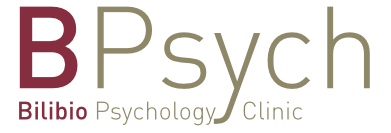Individual Therapy
Individual therapy is a joint process between a trained mental health professional and a client. People seek therapy to get help with difficulties they are facing. At BPsych Clinic we see people from all walks of life who we have the pleasure to meet and assist in their journey to a more satisfying life.
In a safe, caring, confidential environment we hold the space necessary for processing emotional pain, achieve personal growth, and cope better with life’s challenges.
Through gentle guidance and promotion of self awareness and self exploration, our clients tend to build resilience, find purpose, and manage their emotions better.
Some of the things we are able to help with are: overcoming a break-up, loosing someone, depression, anxiety, emotional eating, anger management, traumas.
Relationship Counselling
Relationship counselling, couple therapy or marriage counselling bring partners together in therapy. The therapist has the couple’s best interest in the session. Our marriage counsellors have specific training in this field of relationship and intimacy which we believe to be essential to a positive outcome.
Below are some of the things you might be feeling that could be warning signs to relationship issues:
- Feeling emotionally disconnected from your partner;
- Having intimacy issues;
- Have been through an affair or is having one;
- Think you might be suffering from abuse or control;
- Is constantly arguing with your partner;
- Lost desire for your partner
- Doesn’t appreciate your partner or feel appreciated by your partner
Relationship counselling can help couples to learn relational skills, ways of repairing after hurting each other, communicate in a loving and genuine way, and ultimately, connect again. After a while, couples can gain understanding and empathy for each other and start developing what we call ‘a good enough’ relationship.
Play & Teen Therapy
Children don’t usually say, “I had a hard day, can we talk?” They say, “Will you come play with me?” (Lawrence Cohen) Play therapy encourages children to talk about their feelings using their natural language. Via playing, children can learn to manage their feelings, build relationships, practice empathy and self love.
Your child’s therapist can assist with difficult transitions in your child’s life such as separation, loss, moving away from the community they are familiar with, and starting school.
In today’s ‘teenage world’, parents complain of feeling like they are loosing their children to electronics and mental health issues. A therapist can assist you to explore new ways of connecting and supporting your teen. Some of our BPsych therapists have specific adolescent training and can help with friendship issues, eating disorders, bullying, self esteem, HSC anxiety, depression, addiction and defiant behaviours.
Parenting styles can be a source of disagreement between parents and sometimes having a mediator can be helpful to find a way of giving your child or adolescent united and consistent messages. Children develop trust when they feel safe with adults caring for them.
Many parents come to us feeling pressured to parent perfectly. Sometimes talking to a professional will help you realise that only takes you to embrace your imperfections and be real to be amazing. “Empathy is communicating that incredibly healing message of ‘You are not alone.” (Brene Brown)
eTherapy
eTherapy or Telehealth is psychological support and assistance provided online via videoconference on your choice of device. This service can be arranged from your first appointment or organised between you and your therapist.
Overall, we have found eTherapy to be a great psychological service for those who can’t keep regular appointments due to distance, work schedules and due to child minding limitations.
The Australian Government approved Telehealth services to be provided under Medicare for those living in remote and rural areas. If you wish to receive a Medicare rebate for this type of service you must:
- have an eligible mental health condition and a referral from a GP, psychiatrist or paediatrician
- live in an eligible rural, remote or very remote location
- be located at least 15 kilometres by road from the mentalhealth professional
- not be a patient of an emergency department or admitted to hospital at the time of the service
